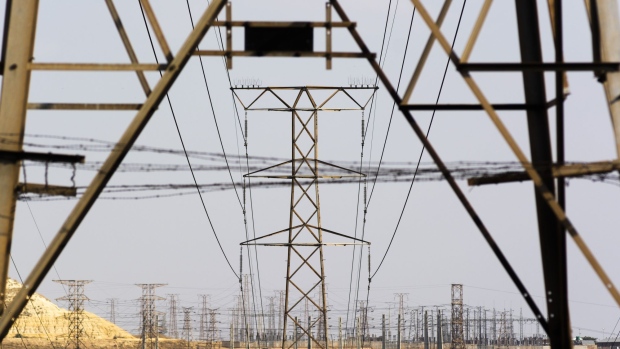Sep 18, 2020
Cameroon Seeking to Build $3 Billion Dam to Export Electricity
, Bloomberg News

(Bloomberg) -- Cameroon will build a $3 billion hydro-power plant as part of an ambitious plan to make the central African nation an exporter of electricity by 2035.
The 810-megawatt Grand Eweng project on the Sanaga River, a joint venture between the government and the U.S.-based energy company Hydromine Inc., is the fifth hydro-project on the river.
The new installation will start generating power by 2028 and capacity will increase to over 1 gigawatt several years after that, according to Lucas Briger, vice president of development and operations at the New York-based project developer.
“The Grand Eweng was initially intended to supply the aluminum sector,” Briger said in an interview. Rising demand in the nation of 25 million people has since positioned the project to supply the general public.
Cameroon, which currently has about 1.5 gigawatts of installed power, could see demand grow to 3 gigawatts by 2035, according to its Energy Ministry.
President Paul Biya’s government has pledged to generate 25% of its electricity from renewable sources by 2035, with a plan to export power to neighbors such as Chad, the Central African Republic and Nigeria. Small hydro- and solar-power sources accounted for just 4.5% of Cameroon’s installed capacity in 2019, according to BloombergNEF data.
A draft law meant to draw investment to the renewable energy sector is still being worked on, said Valerie Nkue, a director at the Energy Ministry.
The company plans to announce equity co-shareholders by the end of the year, Briger said, with the expectation the project would be financed 20-25% from equity and as much as 80% from debt.
Single Offtaker
While the government of Cameroon hasn’t so far committed to invest, the monopoly utility ENEO will be the sole buyer of the power. The additional output will likely be sold to companies like Alucam, an aluminum smelter that has lacked electricity to meet its production capacity of 100,000 tons a year. A World Bank-supported interconnection project, once completed, will also allow Cameroon to sell energy to Chad, which has one of the lowest electrification rates in the world.
The Grand Eweng dam would follow the 420-megawatt Nachtigal project, which also harnesses the Sanaga River, and to which the Bank provided $784.5 million of financing in 2018.
“The Nachtigal project provides a template on how financially a project can be developed in a way that acceptable to all parties involved,” said Briger.
Hydro-power has been a cheap, reliable source of renewable energy around the world for decades but the large-scale infrastructure projects have come under fire for the environmental damage they cause to rivers and the ecosystems they support.
The Sanaga River basin “is an important source of life for Cameroon’s flora and fauna,” said Sakah Mathias, the managing director of Sanys Global Consulting, a Yaounde-based consultancy that does sustainability studies. “The construction of five dams along the river is a serious threat,” he said.
Briger said the project complies with international and Cameroon environmental standards.
The plant could allow the country to “fully eliminate its polluting thermal power capacity,” he said.
©2020 Bloomberg L.P.


